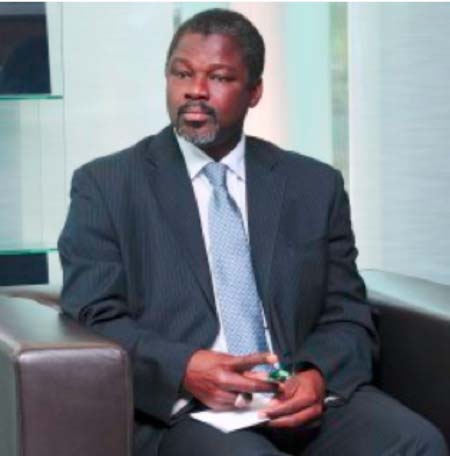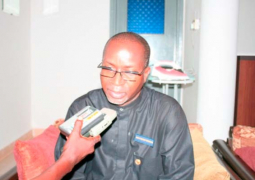
The
Gambia Football Federation (GFF) on Friday 30 December 2016 held its mid-term
review at the Independence Stadium Friendship Hostel.
GFF
president Lamin Kaba Bajo, in his opening remarks, described the meeting as
historic for the football federation.
He
said the forum was “very important” for the GFF hence they had gone half way
into their mandate.
GFF
executive member Bakary K. Jammeh, in a power point presentation, said GFF is
committed to the development of football in The Gambia hence all discussions
and contributions from stakeholders should be centred on “this overriding
principle”.
The
GFF shall take advantage of the FIFA Forward Program to implement the National
Football Development Plan (NFDP) which is geared towards the accelerated
development of all aspects of football in The Gambia, he stated.
According
to Jammeh, the GFF’s key areas of focus from 2017-2020 on grassroots football
development (Academies & School Football) will include Talented Player
Identification and Development Programs; Regional Football Development; Elite
Football (National Championship) Development, and Support to Clubs &
League.
“The
GFF intends to accompany the Leagues and Clubs to better organise and
professionalise,” he stated, saying they plan to introduce women’s league in
the regions, better organise the male and female leagues, strengthen the
competition, marketing, media, medical and referees department of the GFF,
agree with GRTS to air league matches on national TV, live Radio match
commentaries, provide full sponsorship of all leagues, provide capacity
building of club administrators through club licensing, provide free
registration fee for clubs until 2020, and provide league preparation support
(Cash & Equipment), transport expenses support and CAF Club Championship
Competition Support to clubs (indemnities).
On
infrastructure Mr Jammeh said they also plan to develop seven standard football
facilities in the seven regions of the country; improve national league match
venues (grounds) within the greater Banjul area (Banjul, Bakau, Serekunda East,
Serekunda West, Manjai, Brikama and Independence Stadium); provision of
amenities i.e. water supply (boreholes), re-do grass, goals post, nets, corner
flags, dressing rooms; lighting system for Brikama, Serrekunda West and Banjul fields, introduce standardise
branding and advertisement billboards; co-manage with local ground owners, hire
and train ground staff as well as plan
for a new national stadium in collaboration with government.
He
revealed that, at the 66th FIFA Congress on 13 May 2016, FIFA unanimously
approved the FIFA Forward Programme and its regulations.
“FIFA
increases funding for MAs and confederations, prioritising football development
and concurrently demanding proper governance, accountability and transparency,”
he went on.
FIFA
introduced the Contract of Agreed Objectives, which is a two to four-year
framework agreement signed by both FIFA and the respective MAs.
The
yearly contribution of FIFA is up to USD$500,000.00, which is available upon
submission of a request and satisfying all required essential elements two of
which must relate to women football, he further said.
However,
Mr Jammeh said: “GFF has no plan to submit projects under this area, as
significant steps were made over the past two years and the Federation has
adequate human resources e.g. Technical Working Group (TWG) thus, there is
limited need for external consultants.”
He
said there are as well factors such as Organisation Areas (Leadership Training,
Management of League & Clubs, Marketing and Revenue Generation, Event and
Competition Management, Financial Management, Management of Facilities, Stadium
and Seminar, Social Responsibility, IT etc.).
“GFF
intends to focus on Management of Leagues & Clubs. The project is geared
towards the professionalization of Leagues/Clubs and the introduction of
Regional Women League. The project shall support 32 women League Clubs in the
Regional and 26 National League Clubs.”
Revenue
Generation Projects - Transport
Sporting
Areas (e.g. training of technical director, coaches, referees, youth football,
women football, domestic competition, training centres, beach soccer and
futsal, etc.)
“The
project is geared towards the realisation of the capacity building strategic
objective of the GFF (CARM Project)
football
infrastructure (pitches including lighting systems, technical centre, MA head
offices).
“The
project intends to rehabilitate and develop the following football fields: SK
East (natural grass); SK West (natural grass); Bakau (natural grass); Manjai
(natural grass); Banjul (artificial turf) and Brikama (artificial turf).
“Create
2 suitable playing fields in each of the following regions: NBR, CRR, URR and
LRR”.
Mr
Jammeh pointed out that the current GFF inherited a debt of D7.7 million in
2014 but that, its current revenue stands at D55.00 million.



